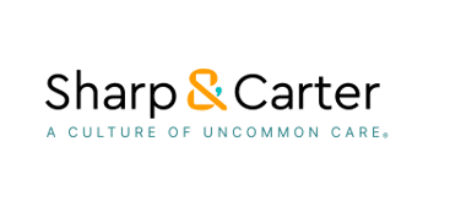Sharp & Carter acknowledges the Traditional Owners of Country throughout Australia. We pay our respects to Elders past and present and extend that respect to all Aboriginal and Torres Strait Islander cultures.
We sat down with Andrew Walker, proud Yorta Yorta man and the CEO of A2B Personnel Recruitment, an Aboriginal owned and controlled business to learn what Reconciliation means to him and his family.
1: What does Reconciliation Week mean to you personally? How are you planning on engaging or participating in events this week?
Reconciliation Week is significant to our family because of our Yorta Yorta heritage. Our grandfather, Pop, was a dedicated shearer for 55 years, born at Cummeragunja Mission during the stolen generation. Despite the troubling times, Pop defied societal norms by marrying our non-Indigenous grandmother. Our family faced racism and the impact of the stolen generation. Reconciliation is important to us, as it represents healing and acceptance. We have both Indigenous and non-Indigenous relatives, and we embrace our diverse heritage, considering reconciliation a crucial part of our upbringing.
2: The theme of Reconciliation Week 2023 is “Be a Voice for Generations”. What does this mean to you?
I have held leadership positions throughout my life. Initially, as a young Indigenous boy drafted into the AFL, I faced challenges adapting to the new environment. However, as I gained confidence and settled into the AFL, I realised the impact I could have as a role model. I took it upon myself to educate my club about Indigenous Australia and became a voice for them. This decision had a significant impact, and I was regarded as a leader by Aboriginal elders in my community. I have been in a leadership role for a long time and believe it is important for young Indigenous individuals to feel empowered and valued within the community.
3: Tell us about A2B Personnel? How does your organisation support and empower Indigenous job seekers in their career development and employment opportunities?
I partnered with Luke Livingston, a fellow country boy, to establish our first-ever Indigenous round at the Carlton Football Club. It aimed to educate the club about Indigenous culture through art and create a positive environment. We involved my uncle, Clivey Atkinson, and reconnected with the Nicholls family. After retiring, my siblings and I focused on creating opportunities for Indigenous individuals in the construction industry. We have successfully employed 145 Indigenous workers through our company.
4: How does A2B Personnel engage with potential employers and encourage them to create inclusive workplaces for Indigenous employees?
Luke Livingston, skilled in business development, has taught me valuable lessons. To earn respect for our Indigenous-focused startup, we engaged with traditional owner groups, explaining our mission and efforts to create positive change. We built trust and relationships within Indigenous communities, focusing on supporting their needs. Recruiting Indigenous talent required a reverse engineering approach, gaining industry validation before utilising the power of word-of-mouth. Our recruitment process acknowledges the complexities of identifying Aboriginality and assists individuals in navigating the certification process. Despite challenges, our legitimacy as an Indigenous-owned company has resulted in significant natural recruitment and recognition.
5: Can you share any challenges or barriers you believe may impact Indigenous employment, and how does A2B Personnel address them?
We face challenges in our work and put significant effort into engaging with traditional owner groups before recruitment in new markets. We spend time visiting locations, speaking to community leaders, and gaining support. Resistance can pose recruitment challenges initially, but once individuals experience our comprehensive support, perception changes and word spreads. Achieving a workforce of 140 Indigenous workers in construction is significant given the small demographic percentage. We are now investing in higher-level personnel through A2B Services Australia, while A2B Australia focuses on white-collar and non-construction roles.
6: What advice or recommendations would you give to recruiters at Sharp & Carter so that we too can help to promote more Indigenous employment opportunities both internally, and through placements with our clients?
In social procurement, it's important to be unique and authentic, rather than treating it as a box-ticking exercise. Many organisations in the construction industry have superficial approaches. Align your approach with your internal values and create your own program. Review and assess progress in the first year, seeking insights from Indigenous and female leaders. Be wary of box-ticking behavior and appreciate innovative approaches. Educate organisations when needed and celebrate moments of change and better understanding.


.png)


.png)
.png)
